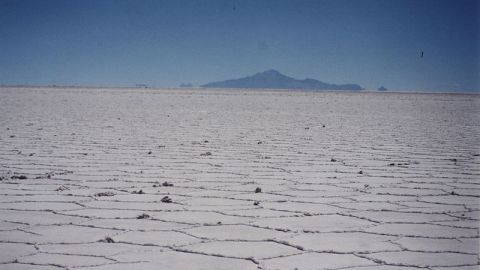What Happened to Climate Change Legislation?

The health care bill was a huge, and even historic, victory for Democrats. In fact, the Democrats are on something of a roll. Not only did they manage to pass student loan reform along with health care reform, but meaningful finance reform looks possible. But they have failed to make much progress in one area: climate change legislation.
The science is clear. For all the talk about a few bad scientific papers, as Joe Romm says, the vast majority of climatologists agree that they earth is steadily warming as a result of human activity. As I have written—and as fellow blogger Michio Kaku says—the recent snowstorms on the eastern seaboard say little about the global trend and are, if anything, to be expected as warmer temperatures cause more water to evaporate into the air. We still had one of the warmest winters on record. And while world’s surface temperature—which is what we are naturally most aware of—varies considerably, the oceans, which store most of the planet’s heat, are warming steadily. If temperatures rise too much, the consequences are likely to be dire, as sea-levels rise, a wide range of species die off, and food-producing regions dry up.
But it is a terrible time to pass climate change legislation, both economically and politically. A whole host of important and apparently more pressing issues—rising health care costs, unemployment, the ongoing conflicts in Iraq and Afghanistan—clamor for our attention. While legislation to regulate the emission of greenhouse gases certainly might more than pay off in the long run, in the short run it would inevitably increase energy costs and slow the economy even further. With the unemployment rate still hovering around 10% and the economy only beginning to add jobs, it’s a tough sell now when so many of us are hurting.
That’s why the Congress is backing off its plan to create a national cap-and-trade system. In a cap-and-trade regime, the government would put a cap on the total amount of carbon that could be emitted. Companies would issued allowances permitting them to pollute some part of the total carbon limit. They would be able to trade these allowances, so that that those who emit less would be able to sell their right to produce carbon emissions to those who want to emit more. They could also effectively increase their allowances by purchasing carbon offsets from reduce the levels of atmospheric carbon, for example, by planting trees. And if they might also be able to retire some of their carbon allowance in exchange for some kind of tax deduction. A cap-and-trade regime would thus place a limit on and gradually reduce the total amount of carbon emissions. And by putting a price on carbon emissions, it gives companies an incentive to limit their emissions, while at the same time allowing those who need to emit a certain amount of greenhouse gases to continue doing it. A cap-and-trade regime was used with great success to limit the sulfur dioxide emissions that were contributing to acid rain under the first President Bush.
But opponents of the idea have labelled it “cap-and-tax,” which makes it a tough sell in difficult economic times. The truth is that by forcing companies to pay for something that they used to do for free is something like a tax, even though of course it is by no means clear that anyone should have the right to put unlimited quantities of pollution into the air. The result, in any case, is that President Obama has dropped mention of a cap-and-tax plan from the latest budget, and Congress is drastically scaling back climate change legislation. In January Sen. Lindsey Graham (R-SC), who is working on climate legislation with Sen John Kerry (D-MA), said that national cap-and-trade legislation was “going nowhere.”
The problem is that if we are to head off an environmental catastrophe, it will cost us something. We aren’t doing enough now. As the BBC reported this week we have fallen behind China in the amount we invest in clean energy, investing around half of what China did last year. And, as Steve Benen points out, if the Republican make pick up a large number of seats in Congress in November, it may be a long time before we do much to address the issue of climate change. Turning out your lights tonight for “Earth Hour” may be a nice gesture. But if we aren’t willing to pay now, we’re have going to pay later.





